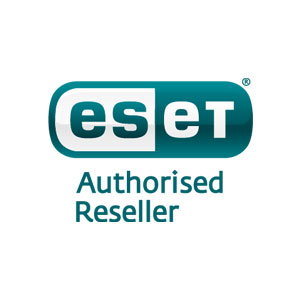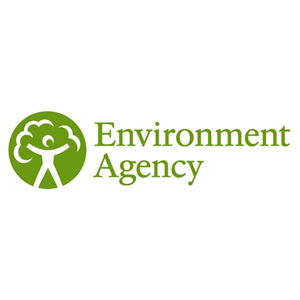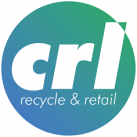Your WEEE Responsibilities
The Waste Electrical and Electronic Equipment (WEEE) Directive came into force in 2007 and is designed to encourage treatment, re-use, recycling and sound environmental disposal of WEEE.
All business disposals of WEEE must adhere to the directive and dispose of their electrical waste through an Authorised Treatment Facility. The directive covers all electronic waste that uses mains power. The EU Waste Framework Directive 2008 (WFD) also introduced a five point “Waste Hierarchy” that businesses must take into account when disposing of waste.
Prevention, which offers the best outcomes for the environment, is at the top of the priority order, followed by preparing for re-use, recycling, other recovery and disposal, in descending order of environmental preference. The EU Waste Framework Directive (WFD) was adopted into UK law in October 2008.
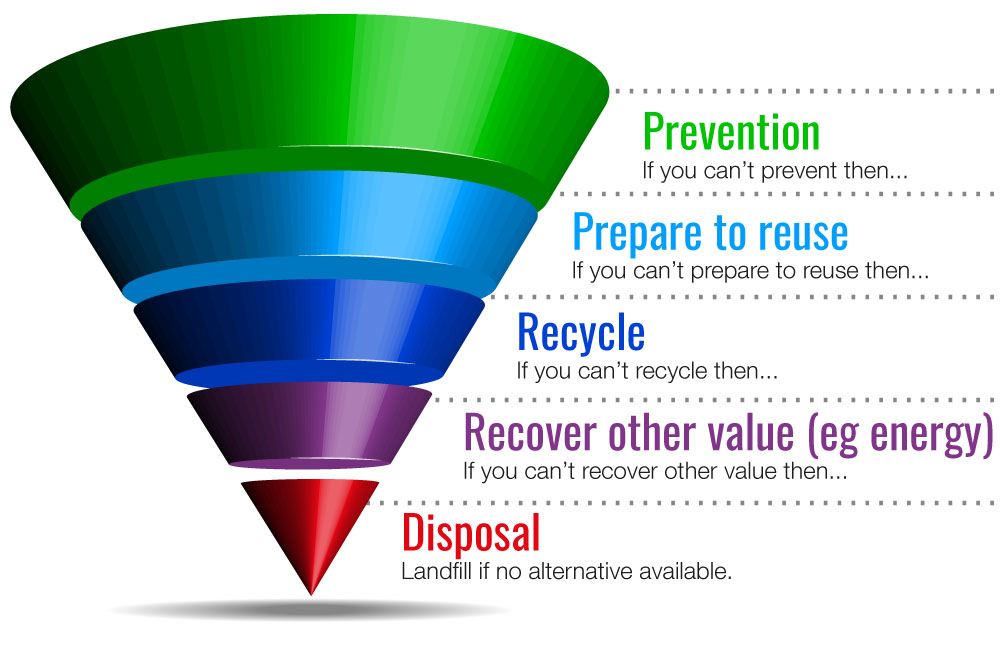
The EU Waste Framework Directive 2008 (WFD) - “Waste Hierarchy”
- Prevention: using less material in design and manufacture, keeping products for longer, re-use, using less hazardous materials
- Preparing for re-use: checking, cleaning, repairing, refurbishing, whole items or spare parts
- Recycling: turning waste into a new substance or product, includes composting if it meets quality protocols
- Other recovery: includes anaerobic digestion, incineration with energy recovery, gasification and pyrolysis which produce energy (fuels, heat and power) and materials from waste, some backfilling
- Disposal: landfill and incineration without energy recovery
Duty of Care
- Amendments under the Duty of Care have been recently consulted upon
- Business users would have to keep proof to demonstrate that one off consignments of WEEE have been disposed of to an accredited re-processor
- Segregating WEEE from the main waste stream
- Separating WEEE which is your responsibility and a producer or suppliers responsibility
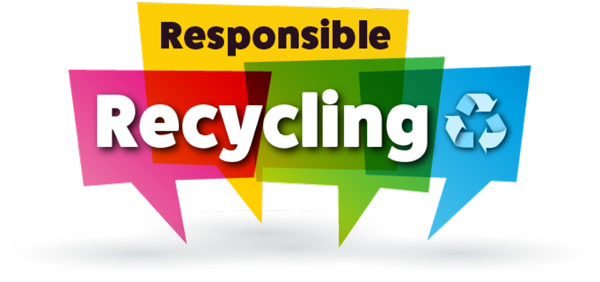
FAQs
Some electronic device components contain constituents that, if improperly handled, could be harmful to the environment and its inhabitants. E-waste that is not recycled ends up in the environment. Water is poisoned, air turns toxic, soil becomes dead, and wildlife and plant life suffer.
Certain components of electronics contain measurable amounts of regulated heavy metals, including lead, silver, barium, cadmium and mercury. Many of these metals can be recovered and responsibly disposed of, based upon EPA standards.
Hazardous waste refers to anything that’s considered harmful to humans or the environment. Not all WEEE waste is hazardous—it’s only classed as hazardous if it contains certain chemicals or metals.
For example, fluorescent tubes and compact fluorescent lightbulbs are classed as hazardous waste as they contain mercury, whereas LED tubes and bulbs aren’t because they don’t contain any hazardous chemicals.
However, the majority of electronic and electrical devices, including laptops, computers, monitors and photocopiers, contain some form of hazardous material.
There’s a full list of what WEEE is classed as hazardous waste here.
Yes, since January 2014 the Waste Electric and Electronic Equipment (WEEE) Regulations 2013 have been law in the UK. This means any company producing or distributing electronic or electrical waste needs to comply with the WEEE regulations and ensure the waste is disposed of correctly.
The onus to handle and dispose of the waste correctly is placed on the waste producers and distributors. This is why many retailers offer a free in-store ‘take-back’ scheme so customers can return their electronic or electrical devices back to the shop they bought it from, or agree to take away old electrical or electronic items when delivering or fitting new ones.
If a producer or distributor doesn’t comply with WEEE Regulations then they could face criminal prosecution.
We have a dedicated section on our website ‘What we recycle’. However this is a common question. We take all forms of Electronic items this can range from cookers, hair dryers to PC’s, Laptops and servers. Were very proud of our NO CHERRY PICKING policy and that often gives us the edge over most of our competition.
- We take all forms of electronics.
- We don’t cherry pick items – Some companies will only take certain items, often leaving you with equipment that will cost you to dispose of.
- We have no minimum quantities for collection
Request more info
Accreditations






